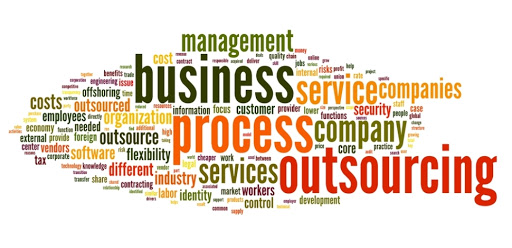Business
5 Things Successful Businesses Have in Common
Published
3 years agoon
By
techonpc
Business
Every single day, thousands of businesses are launched around the world. In 2020, there were 4.35 million new business applications in the US alone. However, 20% of small businesses fail in the first year, 30% in the second year, and 50% after five years. To succeed in the world of business, you need more than good planning and organizational skills.
There’s a thin line between business success and failure. Many entrepreneurs start a business expecting it to pick up immediately, only to discover that entrepreneurship is harder than they thought. And it is. Only 25% of new businesses run for 15 years or more.
However, some businesses succeed against all odds and stand the test of time. What do they do differently? Well, they have a great vision, great financial management, and great people. And that’s not all. Here are 5 things successful businesses have in common.
1. Clear and Well-Defined Goals
Tony Robbins once said, “Setting goals turns the invisible into the visible.”
Setting precise goals help you to establish priorities and set your company up for success. Successful businesses set goals and create individual objectives to help them attain each goal.
Setting long-term and short-term goals helps you stay focused. When you know your organizational goals, you align resources to meet them most efficiently. Long-term goals help you see the bigger picture, while short-term goals act as milestones in your journey to reaching long-term goals. Make sure all the employees know the company’s goals so they can work towards achieving them. Here are some goals you can set:
- To capture a bigger market share
- Increase your profit margin
- Boost efficiency
- Provide better customer service
- Reduce carbon emissions
- Improve employee training
Goals are powerful because they focus your attention on achieving desirable outcomes. Whether you set business goals to provide motivation or to steer the company in a new direction, they should be measurable, specific, achievable, and timely.
2. Risk-Taking
Back in 2001, Microsoft created its first gaming console: the Xbox. At that time, all people knew was the Playstation. The company heavily marketed the device, and it paid off. These days, the video game console is popular with gamers and is also used for video streaming and OTT television.
Businesses that play it safe achieve much less than those that take risks. Successful entrepreneurs are risk-takers. Risk-taking encourages innovation, which can be an important differentiator in the marketplace. And even when the risks don’t pay off, they provide the most valuable business lessons. Failure can shape future business strategies and lead to business growth. Don’t be afraid to try new ideas or to take risks.
Successful entrepreneurs take risks, learn from their failures, and keep tweaking their products and services. They are flexible and adapt to ever-changing economic climates. When you take risks, you distinguish yourself from your competitors. In today’s competitive business environment, risk-takers are leaders.
3. They Empower Employees
Attracting and retaining the right employees is important, but the most important thing is to empower them. Most successful companies empower their employees. They take ownership at work and make decisions without being micromanaged. The companies also go a step further and provide employees with the resources they need to work better–like new technology.
Technology plays a pivotal role in helping businesses grow. And it doesn’t have to be costly or complex to be effective. 74% of employees believe parts of their jobs can be automated. Technology can foster a more efficient, creative, and collaborative environment. The right tools help employees generate, capture, and act upon great ideas that drive business growth.
Almost 80% of managers believe employees can save 60 hours a month with automated workflows. Workflow software can promote collaboration and teamwork, two things critical to business success. Digitizing processes boosts employee morale and saves time. They focus on high-impact work that adds more value to the company.
Yves Rocher automated its onboarding process to save employees time. The cosmetic giant previously had a complex and time-consuming onboarding process. The manual workflow involved many forms and data entry. Approval was also complex and riddled with delays. Forms had to be sent to HR headquarters, which meant some employees started working without having payroll set up.
The company decided to automate crucial stages of its onboarding process. Auto-populating, customizable forms streamlined the process. This speeded up approval, minimized data entry, and ensured employees got paid on time.
4. Great Marketing Techniques
Marketing fosters healthy competition between businesses and builds brand recognition. It boosts sales, helps a company build a consistent client base, and allows it to maintain a long-lasting relationship with its audience. Without good marketing, a business fades into the background and quickly gets forgotten.
68% of marketers believe paid advertising is an important part of their overall marketing strategy, while nearly 40% prefer content marketing. Strong marketing gives a company a competitive edge.
Do you know what your customers want? Do they trust your products? Do people tweet about your products? Do they write complaints or compliments? Marketing can give you the answers to all these questions. How you market your company determines its success. Without marketing, your business may close down due to a lack of sales.
A good marketing strategy can help you address customers’ pain points. Because you understand their needs, you can explain how your products or services can meet their needs. Keep tweaking your marketing strategies based on what’s working and what’s not.
5. Customer-Centric Approach
Many businesses focus on their products and not on their customers. This is a very bad move because, without happy customers, you won’t be in business for long. People complain more than they give compliments, so it’s easier for a customer to complain about your business than praise it. And the thing is, it takes multiple positive customer experiences to make up for a negative one. 65% of customers have switched brands because of a poor experience
Successful businesses understand the importance of customers and have a business model that revolves around customer-centricity. They create positive and personalized experiences for their customers. Customer-centricity allows companies to recognize and take advantage of opportunities, such as unfulfilled customer needs.
The experience a customer has with a business is just as important as the product or service–if not more important. A few years ago, McDonald’s reduced its menu items and launched an ‘All Day Breakfast,’ something its customers loved. As a result, its profits increased. The company has also digitized processes and now offers mobile apps and in-store kiosks.
Learn from Successful Businesses and Grow
Many things contribute to success in business, but it’s up to the people within the company to actually execute the strategies, plans, and processes. Learn from the experts and make your business a success.
Follow Me

Unleashing the Power of the Office Accelerator: Maximizing Productivity and Efficiency in the Workplace with Office 365 Accelerator

Unlocking the Hidden Potential of Your Website: Strategies for Growth

From AI to VR: How Cutting-Edge Tech Is Reshaping Personal Injury Law in Chicago
Trending

 Microsoft4 years ago
Microsoft4 years agoMicrosoft Office 2016 Torrent With Product Keys (Free Download)

 Torrent4 years ago
Torrent4 years agoLes 15 Meilleurs Sites De Téléchargement Direct De Films 2020

 Money4 years ago
Money4 years ago25 Ways To Make Money Online

 Torrent4 years ago
Torrent4 years agoFL Studio 12 Crack Télécharger la version complète fissurée 2020

 Education3 years ago
Education3 years agoSignificado Dos Emojis Usado no WhatsApp

 Technology4 years ago
Technology4 years agoAvantages d’acheter FL Studio 12

 Technology4 years ago
Technology4 years agoDESKRIPSI DAN MANFAAT KURSUS PELATIHAN COREL DRAW

 Education3 years ago
Education3 years agoBest Steph Curry NBA 2K21 Build – How To Make Attribute, Badges and Animation On Steph Curry Build 2K21

You must be logged in to post a comment Login